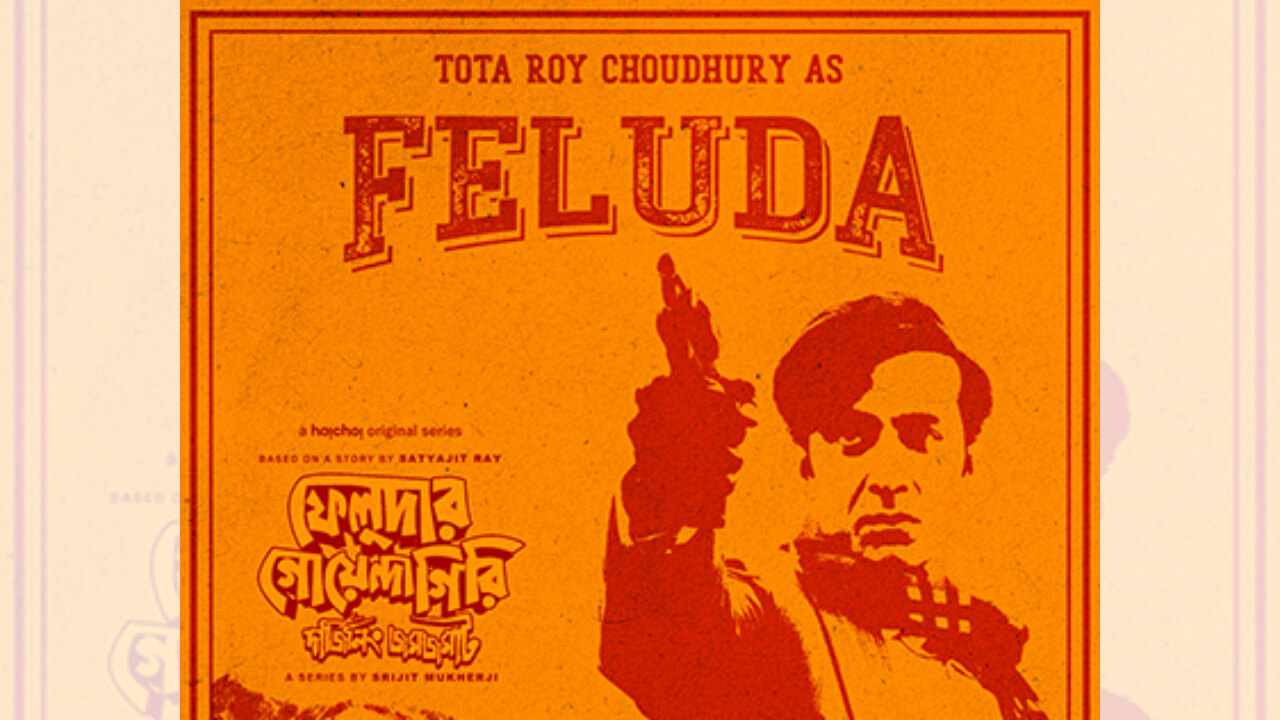The clamorous intellectuals may voice dissent, but their discord does not eclipse reality. The current contrived farce that is taking place all over, with Parambrata’s hideous get-up as Feluda in Shabash Feluda or Tota Roy Chowdhury with his ‘overworked’ body nuances and more tell us what preposterous blunders we are making for the sake of superficial relevance.
I mean, paying homage to Satyajit Ray need not entail the protracted creation of a series based on his works!
There exists a myriad of alternative approaches…
See, it’s not about what one-of-a-kind expert I am in filmmaking, rather it’s all about the visual coherency. Nothing goes beyond that. A mere shawl and a stylised fag with squinted eyes do not make you a Feluda, neither it boosts the screenplay.
Since Sandip Ray, the progeny of the great Satyajit Ray, ventured into producing movies based on his father’s tales, the essence of ‘Feluda’ has been jettisoned.
However, it’s to say that Sandip Roy’s works have a measure of reverence based on his father’s stories…
But the Mukherjee, Sil, and their ilk ought to abandon trying!
Nevertheless, the confounding aspect is the unwritten obligation felt by Bengalis to patronize the films at cinemas, only to return and bemoan that “it bears no resemblance to his father’s works.”
Laughable, is it not?
For what else can one anticipate from a ‘tribute’ composition but a feeble attempt to match the towering benchmarks set by the maestro himself?
And this continues…
How logic dissolved:
The intrusion of contemporary amenities, if any, remained inconsequential to the progression of the riveting investigations.
Take, for instance, the inclusion of cell phones in the later renditions as a means of character communication, which, rather amusingly, failed to sway Feluda from relying upon his astute observation and astute problem-solving prowess.
How utterly delightful it is to witness a detective who steadfastly shuns the lure of technological crutches in favour of timeless detective skills!
Venturing into a contemporary adaptation of Feluda (if you see Parambrata in Shabash Feluda), akin to the illustrious British television series starring the enigmatic Benedict Cumberbatch as Sherlock Holmes, carries an ominous peril of eroding the very essence of the source material’s raison d’être.
…
If I were to compare Feluda to other counterparts… let’s say, Byomkesh, one cannot help but acknowledge the divergence between their respective realms. Such comparisons were bound to arise, particularly given the literal replacement that took place…
Sandip Ray, in his insightful recollections shared in “Ami ar Feluda,” delves into the intriguing genesis of Feluda. It was in the year 1970, with Feluda having only woven his enchanting tales across the pages of Sandesh magazine, delighting readers far and wide, that Ray found himself approached by the editor of the esteemed Bengali literary magazine, Desh.
This persuasive individual implored Ray to contribute a Feluda novella for their cherished annual autumnal issue…Yet, it was not long before Ray realized the extraordinary circumstances that had paved the way for Feluda’s meteoric rise.
The unexpected demise of the revered Saradindu Bandopadhyay left a void in the annual issue, specifically in the realm of detective novels.
Thus, Feluda’s groundbreaking opus emerged within the very pages and in the slot that had been the hallowed domain of Byomkesh Bakshi for years.
Feluda, taking up the mantle of Byomkesh Bakshi, exists in a realm vastly different. The amorous entanglements and sensual escapades are absent, replaced by a meticulously calibrated cast of characters.
Within this structured domain, a predictable pattern of clients and adversaries emerges, marked by meticulously planned thefts and intricate murders.
Feluda’s tales ardently uphold the self-imposed boundaries of permissibility in adolescent fiction.
Verily, this realm stands resolutely divergent from the iconic tableau of Holmes, replete with his meerschaum pipe suspended in mid-air, the aquiline contour of his nose, the deerstalker hat perched upon his head, melodies wafting forth from his violin, his measured strides across the chamber, and the opium-veiled enigmas he unveils.
Honestly, the chasm separating Feluda’s meticulously crafted domain from the enigmatic abode of Holmes could not be more conspicuous, akin to two disparate galaxies eternally apart.
….
On an ending note:
Let it be proclaimed far and wide, for the world must know the great magnanimity of bidding adieu to a beloved character is always cherished. Indeed, it is noble and admirable to preserve an artist’s opus, untouched and untainted by the audacity of revival or reinterpretation.
Let us revel in the grandeur of this acceptable course of action as we bask in the eternal bliss of artistic stagnation.

